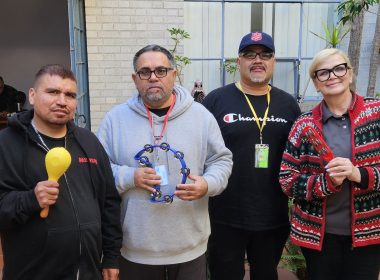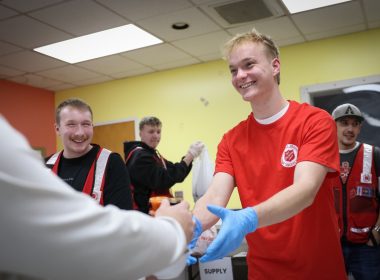by Dave Hudson, Lt. Colonel
“You have been more like a son than my own boy.” My intoxicated father did not intend for me to hear those words, as I lay in the bed next to my cousin, but I did. He had left my mother and me several years earlier, and my mother thought it would be good to accept an invitation from him for me to spend the summer with him. As I heard those painful words, my only thought was, “I want to go home.” The next day I did, vowing never to return.
I must say that over the years, many men—mostly Salvation Army officers—helped fill the role of father in my life. I believe God sent them at the right time, to come alongside to provide direction, accountability and encouragement.
I have always loved Psalm 68:5: …a father to the fatherless, a defender of widows, is God in his holy dwelling. It was as though God were writing just for me. However, even with the people that God sent my way and the special verse that I claimed, there was still a void and emptiness. Why wouldn’t my father love me? Why would he not want me?
I lived most of my teenage years with my aunt, a retired Salvation Army officer. Other than my wife and children, I have never felt more loved and accepted by anyone in my life. I look back on most of my life, and up to the time she passed away she was at every major event of my life (my commissioning, my wedding, the birth of my children). I never remember us parting when she did not tell me how much she loved me and was proud of me.
My aunt had a stroke at the age of 92. I went to see her about two weeks before she died. She would not speak and would only make a few non-verbal signs when she was thirsty or needed something. When it came time for me to return home, I asked my family if I could have a few brief moments alone with her. As I stood next to her bed, with tears streaming down my cheeks, I asked her, “How do you say thank you to someone who has always been there?” Words seemed so futile and meaningless. I bent down and kissed her face, and said, “Thank you. I love you so much.”
My aunt opened her eyes, turned and looked at me, and said, “You have been like a son to me.” Of all the words she could have said, nothing would have touched my heart so much. On her deathbed, she was teaching me one more lesson: I was worthy of being someone’s child.
Jesus told his disciples on the evening of his betrayal, “I will not leave you as orphans.” By doing so, he gave them assurance that no matter what happened, he would be with them. Paul echoed these words in his letter to the Romans 8:15-16: …but you received the Spirit of sonship. And by him we cry, “Abba, Father.” The Spirit himself testifies with our spirit that we are God’s children.
Many people go through their lives feeling rejected and unaccepted. They fear that even the people who profess their love wouldn’t if they really knew them. Thank God he knows us better than we know ourselves and loves us all the same. Thank God, his love is unconditional.
I received an e-mail from an officer who, at the bottom of his letterhead, has the words, “We make citizens of the rejected.” I read that and say, “Absolutely.” That is a primary role of the Church. The family of God is largely made up of a bunch of rejected people, who struggle to believe in themselves and long to feel like they belong. Our response must be, “Welcome home.”









